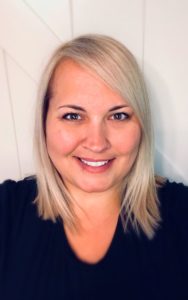2022 Education Predictions from IMSE’s Chief Academic Officer Janice Kohler-Curtis
As we kick off the new year, the consequences of pandemic-caused disrupted learning on literacy have exacerbated the widespread urgency to help educators become more aware of the Science of Reading and how to use it in the classroom to cultivate strong readers.
Recently, at The Reading League Conference, Kareem Weaver, an award-winning teacher, administrator, and senior fellow at the National Council on Teacher Quality put it this way:
“The Science of Reading must not be considered an ideological preference, pedagogical inclination, or inevitable swing of an instructional pendulum. Rather, the research consensus and supporting science must be applied as a matter of equity and civil rights.”
IMSE’s Janice Kohler agrees:
“The Science of Reading is not a fad – it is a body of research that guides instruction in the classroom in order to give every student the best possible chance in life, which includes knowing how to read.”
With this increasing awareness and acceptance, Janice shares her predictions for what we can expect to see this year to help mitigate literacy losses:
More legislation about how teachers teach students how to read.
- We are going to start seeing more and more state legislation requiring that universities teach pre-service teachers about linguistics, cognitive neuroscience, and how the brain learns to read. Districts will forgo a ‘wait to fail’ model where students are identified in third or fourth grade before receiving the instruction they need vs. giving instruction to all students from the onset of school.
More investment in teacher training and certification.
- Districts are realizing that teachers are the best resource for any school. Teacher knowledge is imperative to move students forward. Teachers want programs that they can implement immediately: not just something they read from a book. Educators want something they can implement through knowledge, partnerships, and fidelity. Certification will become increasingly more important to ensure fidelity, and cohorts of teachers will pop up who are dedicated to making significant changes.
Increased support to prevent teacher shortage.
- Teachers who remain in education have a passion for it and are dedicated to helping children. The past two years have been very challenging for educators. Districts will see the importance of giving teachers the tools to be successful, provide support, and show greater appreciation of them to prevent quality educators from leaving the field.

Before joining IMSE, Ms. Kohler was an intervention specialist for K-12 schools for nearly 20 years.
Please connect with us on Facebook, LinkedIn, Twitter, and Pinterest to get tips and tricks from your peers and IMSE. Read the IMSE Journal to hear success stories from other schools and districts, and be sure to read the OG Weekly email series for refreshers and tips.
